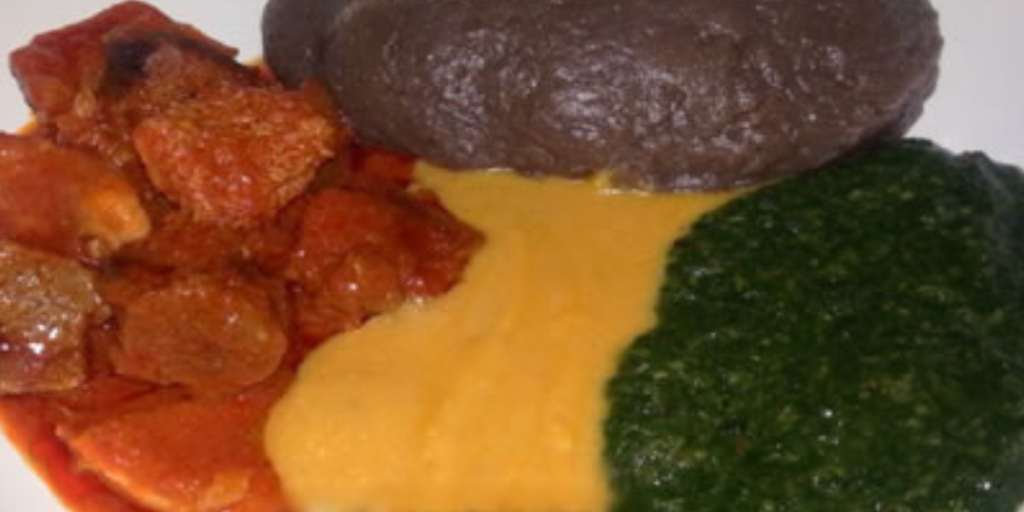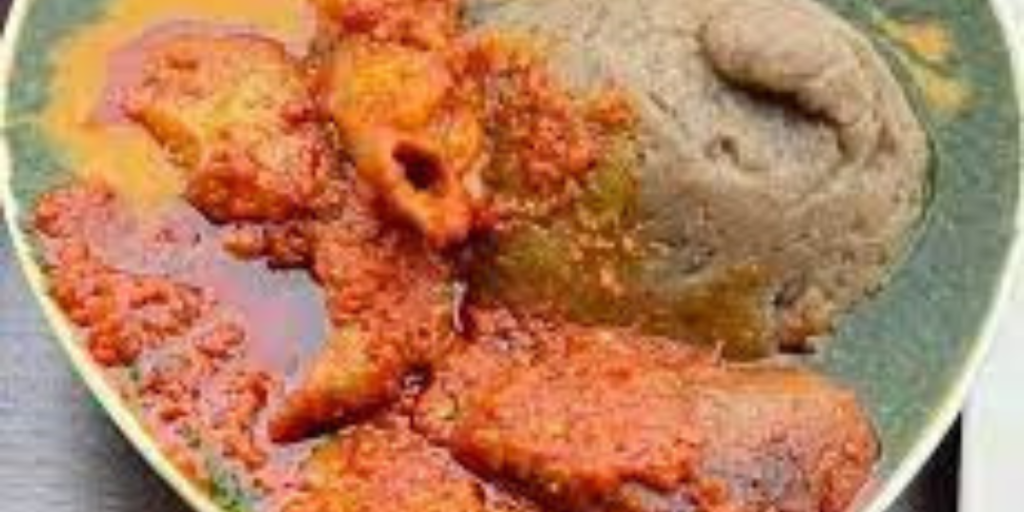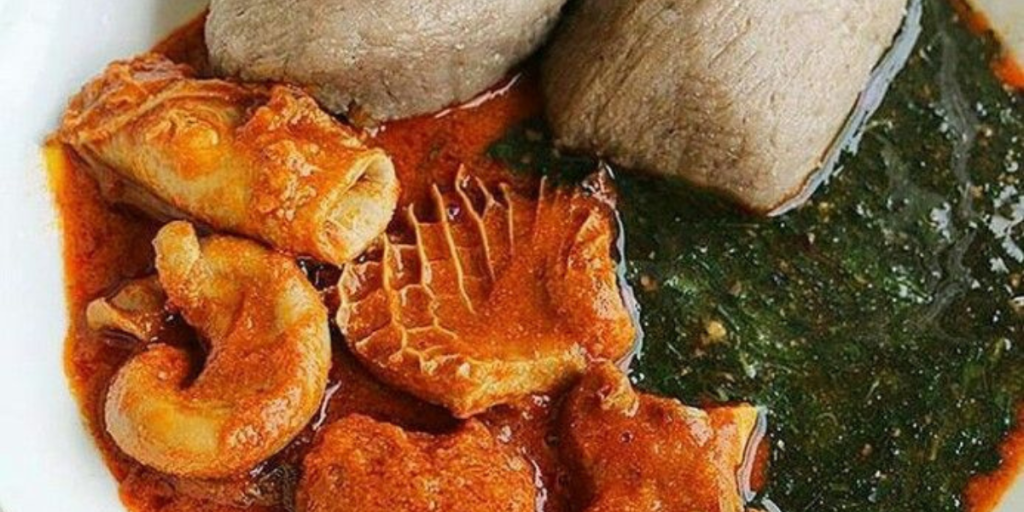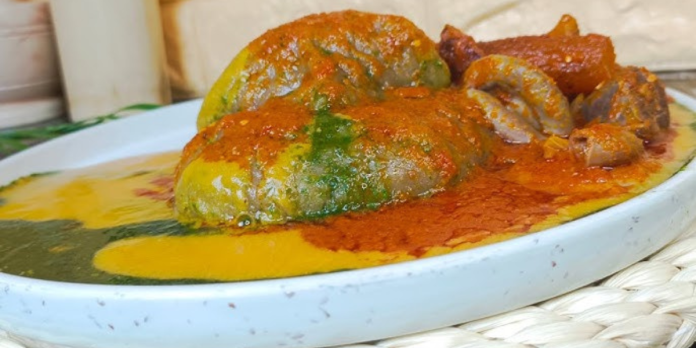Table of Contents

Amala and Ewedu : Weight loss is a common goal for many individuals seeking to improve their health and well-being. With the plethora of diets and nutritional advice available, it’s crucial to evaluate traditional foods and their potential benefits. One such pair of traditional Nigerian foods, Amala and Ewedu, has garnered interest for its nutritional profile and potential role in weight management. In this article, we will explore whether Amala and Ewedu can aid in weight loss, examining their nutritional content, cultural significance, scientific perspectives, and personal testimonials.
Understanding Amala and Ewedu

What is Amala?
Amala is a staple food among the Yoruba people of Southwestern Nigeria. It is made from yam flour (Elubo), which is derived from dried yam tubers. The flour is mixed with hot water to create a smooth, stretchy dough. Amala is known for its distinctive brown color and is typically served with a variety of soups and stews.
What is Ewedu?
Ewedu is a green, viscous soup made from jute leaves. The leaves are blended or whisked into a smooth consistency and then cooked with water and traditional seasonings such as potash or baking soda, locust beans (iru), and ground crayfish. Ewedu is often paired with Amala or other traditional Nigerian dishes.
Amala and Ewedu Recipe: 1 Of The Best Yoruba Heritage
Nutritional Profile of Amala and Ewedu

Amala
Amala is primarily composed of carbohydrates, which are a crucial source of energy. A typical serving of Amala provides:
- Calories: Approximately 200-250 kcal per serving
- Carbohydrates: Around 50-60 grams
- Fiber: About 2-4 grams
- Protein: Approximately 2-4 grams
- Fats: Minimal amounts
The fiber content in Amala is particularly noteworthy, as dietary fiber is known to aid in digestion and promote a feeling of fullness.
Ewedu
Ewedu soup, made from jute leaves, is rich in essential nutrients and low in calories. A typical serving of Ewedu provides:
- Calories: Approximately 30-50 kcal per serving
- Carbohydrates: Around 5-10 grams
- Fiber: About 2-4 grams
- Protein: Approximately 2-4 grams
- Vitamins and Minerals: High in vitamins A and C, calcium, and iron
Ewedu is also rich in antioxidants and has anti-inflammatory properties, contributing to overall health.
Scientific Perspectives on Weight Loss

The Role of Carbohydrates
Carbohydrates are often viewed with skepticism in weight loss discussions due to their potential to raise blood sugar levels and promote fat storage. However, not all carbohydrates are created equal. Complex carbohydrates, like those found in Amala, provide a slow and steady release of energy, preventing spikes in blood sugar levels and reducing cravings.
Chin Chin | What is the Role of Egg in Chinchin?2024…
The Importance of Fiber
Dietary fiber is a key component in weight loss. It adds bulk to the diet, promoting a feeling of fullness and reducing overall calorie intake. Both Amala and Ewedu are good sources of dietary fiber, which can aid in weight management by reducing hunger and preventing overeating.
Nutrient Density
Ewedu is nutrient-dense, meaning it provides a high amount of vitamins and minerals relative to its calorie content. Consuming nutrient-dense foods is essential for maintaining health while reducing calorie intake, as it ensures the body receives the necessary nutrients without excess calories.
Cultural Significance and Eating Habits
Traditional Nigerian Diet
The traditional Nigerian diet, which includes foods like Amala and Ewedu, is based on whole, unprocessed foods. This diet is naturally rich in fiber, vitamins, and minerals, contributing to overall health and well-being. Traditional meals are often balanced with a combination of carbohydrates, proteins, and vegetables, providing a holistic approach to nutrition.
Unveiling the Best 5 Weight Loss Diet: How Healthy Are You?
Portion Control
Portion control is a critical aspect of weight management. Traditional Nigerian meals are typically served in moderate portions, which can help prevent overeating. Eating smaller, balanced portions of Amala and Ewedu can contribute to a healthier diet and aid in weight loss.
Success Stories
Personal testimonials can provide valuable insights into the practical application of dietary choices. Many individuals have reported successful weight loss while incorporating Amala and Ewedu into their diets. These success stories often highlight the importance of balanced meals, portion control, and regular physical activity.
Case Studies
Case studies of individuals who have successfully lost weight with the help of Amala and Ewedu can offer a detailed look at the dietary patterns, lifestyle changes, and challenges they faced. These real-life examples can provide inspiration and practical advice for others seeking to achieve similar results.
How to Make Chin Chin with 500g Of Flour Best of…
Practical Advice for Incorporating Amala and Ewedu into a Weight Loss Plan

Balanced Diet
Incorporating Amala and Ewedu into a balanced diet is crucial for achieving weight loss. Pairing these foods with lean proteins, healthy fats, and other vegetables can create a nutritious and satisfying meal. For example, a typical meal might include a serving of Amala, a generous portion of Ewedu, and a side of grilled chicken or fish.
Portion Control
Practicing portion control is essential for weight management. Start with smaller portions of Amala and Ewedu and listen to your body’s hunger and fullness cues. Eating mindfully and avoiding second helpings can help reduce overall calorie intake.
Regular Physical Activity
Combining a healthy diet with regular physical activity is the most effective way to lose weight and maintain a healthy lifestyle. Incorporate activities you enjoy, such as walking, dancing, or sports, to stay motivated and active.
Hydration
Staying hydrated is important for overall health and can aid in weight loss. Drinking water before meals can help you feel full and reduce the likelihood of overeating. Aim for at least 8 glasses of water a day, and more if you are physically active.
Frequently Asked Questions

Can I eat Amala and Ewedu every day and still lose weight?
Yes, you can eat Amala and Ewedu regularly as part of a balanced diet. The key is to practice portion control and ensure that your overall diet is varied and includes other nutrient-dense foods.
How can I make Amala and Ewedu more weight-loss-friendly?
To make Amala and Ewedu more weight-loss-friendly, focus on portion control, use minimal oil and seasonings, and pair the meal with lean proteins and vegetables. Additionally, avoid high-calorie side dishes and sugary beverages.
Are there any side effects of eating Amala and Ewedu?
Amala and Ewedu are generally safe to eat and have no significant side effects when consumed in moderation. However, individuals with specific dietary restrictions or allergies should consult a healthcare professional.
Can I prepare Amala and Ewedu in advance?
Yes, you can prepare Amala and Ewedu in advance. Amala can be stored in the refrigerator for up to 3 days and reheated by steaming or microwaving with a little water. Ewedu can also be refrigerated for up to 3 days and reheated on the stove.
Is Ewedu soup good for digestion?
Yes, Ewedu soup is good for digestion due to its high fiber content. Dietary fiber promotes healthy digestion, prevents constipation, and supports a healthy gut microbiome.
The Benefits of Healthy Breakfast Ideas: 6 Ideas
Conclusion
Amala and Ewedu, two traditional Nigerian foods, offer a unique combination of nutritional benefits that can support weight loss when incorporated into a balanced diet. The fiber content in both Amala and Ewedu helps promote a feeling of fullness, reducing overall calorie intake. Additionally, Ewedu’s nutrient density provides essential vitamins and minerals while keeping calories low.
Cultural practices, such as balanced meals and portion control, further enhance the potential of Amala and Ewedu in weight management. Personal testimonials and case studies underscore the practical application of these foods in successful weight loss journeys.
For those seeking to lose weight, incorporating Amala and Ewedu into a healthy eating plan, along with regular physical activity and mindful eating practices, can lead to sustainable and effective results. Sharing this article on social media platforms can help spread awareness about the potential benefits of Amala and Ewedu, encouraging others to explore these traditional foods as part of their weight loss journey.
Feel free to share your own experiences, recipes, and tips for incorporating Amala and Ewedu into a healthy diet. Use hashtags like #AmalaandEweduForWeightLoss, #NigerianCuisine, and #HealthyEating to connect with others who share your interest in these nutritious and delicious foods.





















